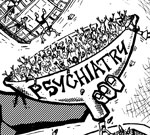The Amino Acid Basics You Should Know
| Share on Facebook | Share on Twitter | Share on Google+ |
Amino acids are the building blocks of proteins. They build the cells, repair tissues, are responsible for the production of enzymes, and play a key role in mental health.
The breakdown of proteins into amino acid is the first amino acid function. From here the amino acids combine with nitrogen where they can then be transformed into thousands of different protein forms that the body can use.
There are 20 amino acids that the body uses to construct proteins. These are broken down into essential amino acids and non-essential amino acids.
What is an essential amino acid?
There are 8 amino acids that the body cannot manufacture and these are called essential amino acids. These amino acids must be supplied in our food. However, the term non-essential should not mislead you. All amino acids are essential for proper protein synthesis.
What you need for proper protein synthesize
In order to achieve proper protein synthesis all of the required amino acids must be present in the body at the same time and in the right quantity. If there is one essential amino acid in very short supply it is known as the limiting amino acid and this will restrict the quantity of protein that can be synthesized regardless of how much of the other amino acids are available.
We see that a shortage of even one amino acid can cause protein synthesis to be greatly reduced and it can stop altogether if left untreated.
What Is Complete Protein and Incomplete Protein?
Protein can be classified as complete and incomplete. Complete protein comes from animal sources such as meat, chicken, fish, dairy products, and eggs.
Complete protein contains all the essential amino acids the body needs. These animal proteins are also the only reliable source of vitamin B12 but they do lack in fiber and often contain large amounts of saturated fat and cholesterol.
Incomplete protein comes from fruits and vegetables. These foods are low in one or more of the essential amino acids. Nuts, seeds, legumes, and grains all vary in their protein content and vegetarians will needs to combine these foods in the right way to get complete protein. Vitamin B12 however, will still need to be supplemented.
Vegetarians should note however, that soybeans are one of the few vegetable sources that will supply complete protein which will give a little more flexibility when combining foods.
Other Amino Acid Information:
- Vitamin B6 and Vitamin C are the vitamins needed for amino acid metabolism and to help with the absorption of amino acids. Include these vitamins with your amino acid supplements
- If you are taking amino acid supplements, L-Forms are recommended as they are more acceptable to the body.
- Check that your amino acid supplement contains all the essential amino acids in the right proportions.
- If you are taking a single amino acid as a supplement, taking it with empty stomach may help its absorption.
- Keep in mind, amino acids work best when all of essential and non-essential ones are provided to the body.
Therefore, it is good idea to add a complete amino acid supplement to your individual amino acid supplementation.
More Amino Acids Related Articles
L Glutamine for Bodybuilding - L-glutamine isn't just for bodybuilding any more. In fact, it is only used in specialized situations in bodybuilding, primarily during recovery from injury. However, low-calorie dieters, diabetics who work out, and people who tend to get infections when they do heavy exercise may find glutamine supplements very helpful.
Amino Acid Side Effects - Want to learn more about amino acids and how important they are in your body? This article contains important information on amino acids and contains a list by categories.
Lysine Benefits - If you suffer from cold sores or the herpes virus find out how lysine benefits your body and helps to fight these attacks.
L-Tyrosine - The human brain makes the mood regulating neurotransmitter dopamine from the amino acid L-tyrosine. Getting enough L-tyrosine is essential in fighting depression.
Arginine and Ornithine - Arginine and ornithine are a useful combination for enhancing muscle growth during serious weight training. The dosage that you need, however, is really quite small.
L-arginine - Arginine can be a very useful supplement, although manufacturers typically try to persuade people who only need small doses to take big doses and people who need big doses to take small doses. Here is a detailed, and I hope, not especially confusing, explanation of who needs how much arginine, and when.
L-carnosine Benefits - Has someone tried to sell you an "L-carnosine amino acid supplement?" If they have, look twice, because L-carnosine is not an amino acid. This protein supplement offered in capsules and eye drops is, however, extremely useful in treating peptic ulcer disease, often useful in Asperger's and autism support, and worth a second look for other conditions of aging.
L-Citrulline and L-Arginine - Citrulline is one of those supplements that have been around for a while. But does it really work? And if you take citrulline, will you benefit from taking arginine?
L-Proline Benefits - Proline is important for collagen, skin, and bone. Proline supplements are not for everyone, but they are useful for treating wrinkles, torn ligaments, osteoporosis, and broken bones. And Nobel laureate Linus Pauling believed that a combination of proline and lysine along with high doses of vitamin C could prevent or reverse atherosclerosis.
Lysine - Lysine is important for muscle growth in children and pH balance in adults. And it also can be potently antiviral against cold sores and herpes. Success with supplemental lysine, however, depends on taking it at the right time.
Lysine for Herpes - The amino acid lysine may help prevent herpes outbreaks. But just as important as getting enough lysine is avoiding arginine.
Lysine for Cats - Lysine for cats helps prevent outbreaks of a disease of which most cat owners are unaware, feline herpesvirus 1, or FHV-1.
Histidine - Histidine is the body's best indicator of metabolic stress. When the body has to break down healthy tissue for essential amino acids, histidine accumulates in the urine. Histidine is also the only amino acid that is deficient in rheumatoid arthritis, a condition for which histidine supplements may be very helpful.
Threonine - Threonine is a little-known amino acid with a big role in immune defense. It is essential to the function of the thymus, a tiny gland in the chest that makes many of the immune cells and compounds that fight infection and cancer. Tiny deficiencies in threonine can cause huge problems in immunity. And modest amounts of threonine supplements can be helpful in celiac disease, depression, and certain neuromuscular problems.
L-Cysteine Benefits - L-cysteine is often marketed as a natural decongestant. While there are limitations on how much L-cysteine one should take and who should take it, L-cysteine is useful for fighting clogged air passages and much more.
Effects of Tryptophan - L-tryptophan can have many positive effects on your body. Find out if you could benefit from them.
Sources of Tryptophan - If you suffer from constant tiredness and low moods your body may be lacking in tryptophan. Find out just what the best sources of tryptophan are and how you can supplement them in your diet.
Amino Acid List - Want to learn more about amino acids and how important they are in your body? This article contains important information on amino acids and contains a list by categories.
Benefits of L Arginine - From enhancing your immune system to beating male infertility problems, find out how the benefits of L arginine can help you.
Dimethylglycine Benefits - Marketers who promote dimethlyglycine typically are trying to sell you an expensive supplement you don't need. In this article, I am hoping to persuade you to consider an inexpensive supplement you may need. Dimethylglycine supplements usually aren't helpful, but related nutrients such as magnesium, vitamin B6, choline, betaine, methionine, and glycine often are.
L-arginine for Bodybuilding - Arginine in "NO2 supplements" is a favorite of bodybuilders all over the world. But is it really a worthwhile additional to your stack?
L-Glutamine Benefits - Glutamine is the "essential non-essential" amino acid. If your objective is bodybuilding, glutamine supplementation should not be at the top of your list of nutritional priorities. But for brain health and several major diseases of aging, glutamine can make major changes in your life.
Glycine - Glycine is the amino acid most closely connected to healing wounds. In most situations glycine is a non-essential amino acid, but if supplemental glycine is sometimes very helpful in wound healing as well as in treating prostate problems and gout. And there is also a form of glycine that actually delivers what the "NO" supplements for bodybuilders promise, which I'll discuss at the end of this article.
Serine - Serine is a non-essential amino acid that you don't need in excess. Phosphatidylserine, however, can be very helpful for the health of the central nervous system, lifting depression, restoring focus, and making sleep easier.
-
Skin CareMen Skin Care
-
Free ResourcesFree eBooks
-
The way you think, the way you behave, the way you eat, can influence your life by 30 to 50 years.Deepak Chopra
-
Featured Health Supplement
 ...a broad spectrum of around 80 of the nutrients that your body needs…including vitamins, minerals, trace elements, antioxidants,
amino acids, neuronutrients, bioflavonoids, carotenoids, herbal extracts, enzymes and other complementary co-factor ingredients.
...a broad spectrum of around 80 of the nutrients that your body needs…including vitamins, minerals, trace elements, antioxidants,
amino acids, neuronutrients, bioflavonoids, carotenoids, herbal extracts, enzymes and other complementary co-factor ingredients.
-



















